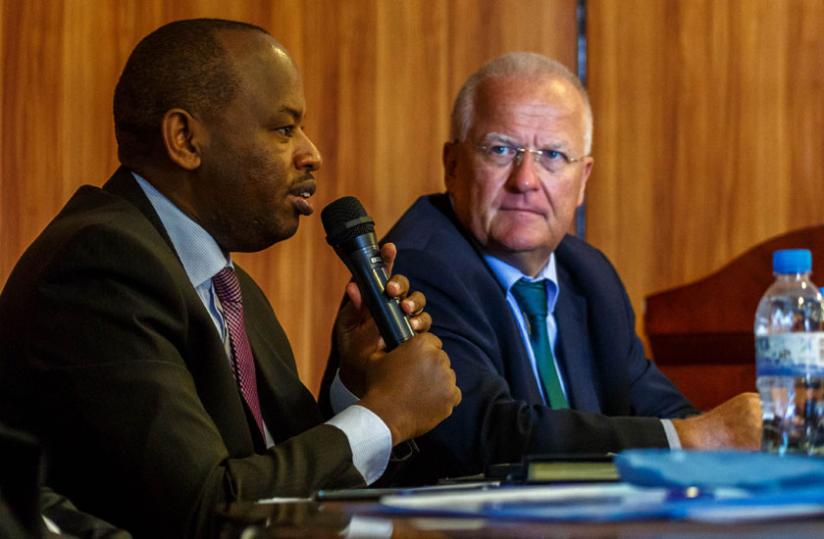Experts have advised government to invest more resources to support Technical and Vocational Education and Training (TVET) programmes to make the economy more competitive.


Experts have advised government to invest more resources to support Technical and Vocational Education and Training (TVET) programmes to make the economy more competitive.
According to the experts from Chamber of Skilled Craft Koblenz in Germany, developing stronger TVET systems will help make the country’s private sector more innovative, thus driving economic growth.
The experts were yesterday speaking at the opening of a two-day workshop on how to boost TVET programmes in the country, in Kigali.
The workshop is in line with the TVET partnership project between Germany’s Chamber of Skilled Craft Koblenz, the Workforce Development Authority, Private Sector Federation and the Integrated Polytechnic Regional Centre (IPRC) East.
Albert Nsengiyumva, the state minister for TVET, said unless the question of skills is addressed, the private sector will find it hard to deliver sustainably to national development.
"Investing in skills means more competitiveness and stronger capacities for the private sector to become more profitable and create jobs for the country; this will translate into a more robust and faster economic growth,” Nsengiyumva said
Rwanda and Germany, through the Chamber of Skilled Crafts Koblenz, are collaborating to strengthen TVET programmes in the country in several areas.
The latest partnerships seek to establish a reliable and sustainable network between professional colleges and firms, and encourage exchange of information, experiences and expertise between the two countries.
Nsengiyumva said one of the most important objectives of the project is to support Rwanda’s efforts to offer quality vocational qualification.
Peter Fahrenhltz, the German ambassador to Rwanda, said the partnership would help address the current skills gap to propel the country toward achieving middle income status.
"Rwanda has an economic challenge of creating jobs, reducing poverty levels and achieving and sustaining economic growth; therefore, financing Rwanda’s TVET systems is critical for the realisation of these objectives,” Fahrenhltz said.
Funding TVET
Amb. Fahrenhltz said Germany is investing more than Euro 22 million (about Rwf17 billion) in supporting Rwanda’s TVET programmes.
According to the National Institute of Statistics of Rwanda’s household and living condition survey 2013-2014, at least 146,000 off-farm jobs were created in the country annually over the past three years.
Statistics also show a 24.4 per cent increase in business enterprises between 2011 and 2014, which created 34.5 per cent new jobs – 47.9 per cent of which were established in rural areas, with 22.4 in urban areas.
This was possible mainly because TVET programmes contributed to the vibrancy of the small and medium enterprises.
Theobald Mugabo, the managing director of Hygebat Construction Company Ltd, said there is potential to double these figures with sustained efforts to invest in TVET.
In its the Second Economic Development and Poverty Reduction Strategy blueprint, government targets to create at least 200,000 off-farm jobs annually, boost exports and household incomes.
Manfred Rube, the director of legal department at Handwerkskammer Koblenz, a German-based company, Rwanda can easily achieve the target by establishing strong legal and systematic TVET systems.
"The companies will benefit from having a pool of qualified employees – customised to their needs – which will increase their revenue and that of the country,” Rube said.
editorial@newtimes.co.rw


